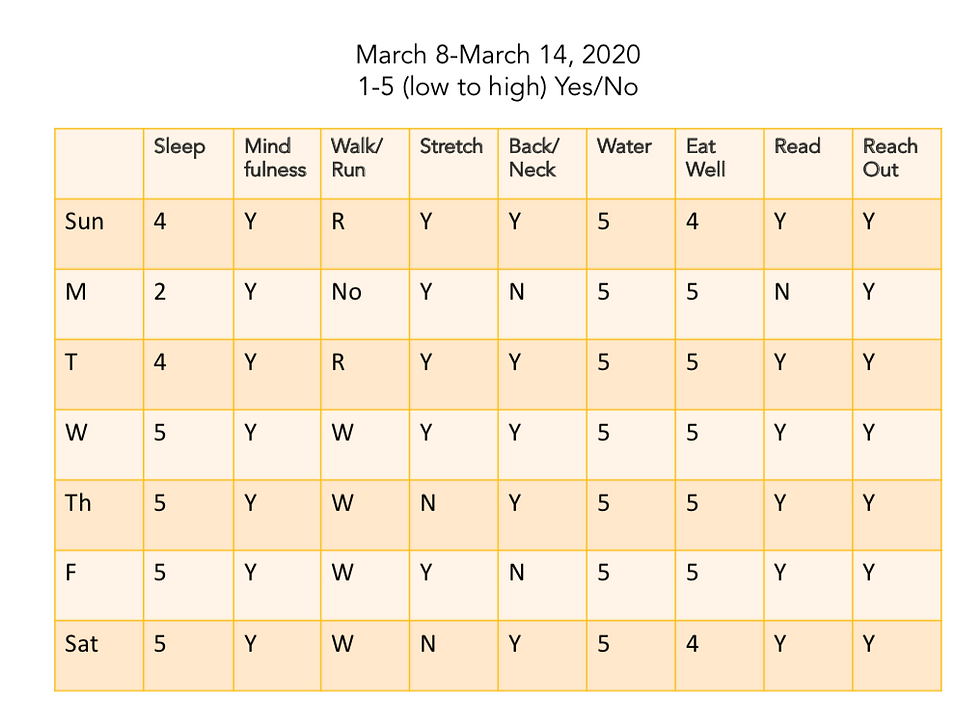
This post was from March 2020 and has been revised.
The shifts in our worlds continue, and they always will. If you have a daily self-care plan that you stick to, that means you're becoming what you practice. You're creating a brain that predicts self-care—it comes naturally to you. All of that has a better chance of happening if you put some thought and energy into creating a written plan.
Benefits of a Formalized Self-care Plan
1. When you develop a habit of writing things down, you not only create an accountability system, but you're able to discern patterns. If you ever want to drink less alcohol, write down every drink you have and every penny you spend on alcohol. If you want to exercise more, document your exercise.
2. We all need to be our best for ourselves and each other, and a formal self-care plan is a way to do our best in the situation we're in. Your plan is about the things your unique self needs to function as well as it can. It lightens your mental load by providing you with a bespoke routine that programs a bunch of your decisions. It's preventative, in that it puts your personal challenges right in your face and asks: What are you going to do about this today?
Me, for instance? I need a ton of sleep. And I have to stretch. Plus, I have these neck and back exercises that I don't love doing and if I don't check off doing them each day I will "forget" to do them. And that doesn't end well for me or anyone in the vicinity of my physical pain. Pain is something that can affect your behavior, thoughts, and relationships, although you might not associate the pain with the thoughts or the behavior. Mindfulness? If I don't do it, I might not be alert to the reality that the pain is lurking and might muddy or otherwise be reflected in what I'm thinking and feeling.
As soon as I get up, I'm all about checking things off of the list that I know are fantastic for me and make me a better person, inside and out. Or at least they maintain whatever relative goodness I ended the previous day with.
3. You're better positioned to figure out what you need to do to course-correct. Let's say you've got your plan and you're doing well and then you're not, but you're still following the plan. What could be the underlying cause? There's likely something that needs to be added to your plan. Maybe there's a non-essential relationship in your life that's very taxing or otherwise negative. Maybe there's an essential relationship in your life like that. Perhaps you need to create a mini-self-care plan just for negotiating that.
My plan is minimalist. I also have a journal entry per day that includes my mood and tidbits like: "I ate my body weight in salt today" or "Had a lovely conversation with my neighbor, Jenny!" The following day I will likely see shifts in mood.
PRO TIP: Good sleep hygiene includes regularly speaking with wonderful people. Included in it is preparing your mind and body, and supportive relationships have been shown to improve sleep quality.

Finally, get yourself a self-care buddy. Create a self-care community. Use the phone as an actual phone and talk to people! We're social mammals, remember that. We help and heal each other through connecting. We need each other.
If you'd like to check out what 9.37 minutes of self-care sounds like, here's a guided meditation.
May ease find you.
mm
Comments